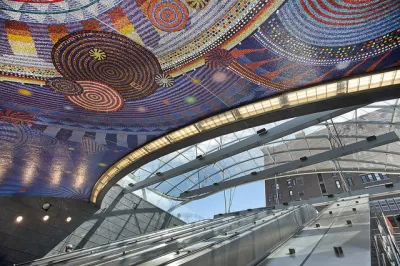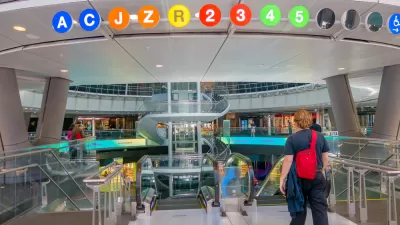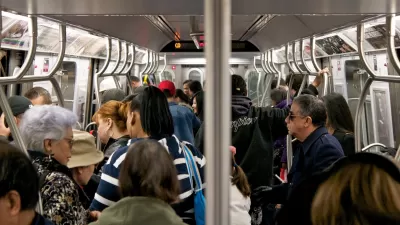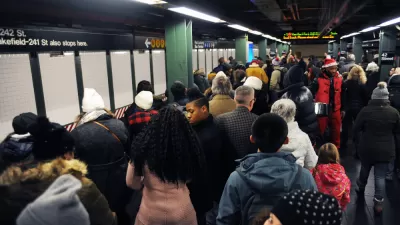A new report from the Regional Plan Association identifies the nature of the problem with the New York MTA's construction costs, and recommends 11 possible solutions.

Brian M. Rosenthal reports:
The Metropolitan Transportation Authority could dramatically reduce its sky-high construction costs by rethinking how it manages projects, prioritizing efficiency over bureaucracy and ending rules that require far more workers than are needed, according to a new report based on two years of research.
The Regional Plan Association released the report, "Building Rail Transit Projects Better for Less" [pdf], earlier this week to highlight recommendations included in the Fourth Regional Plan.
"Among other factors, the report’s authors found that recent megaprojects like the first phase of the Second Avenue Subway on Manhattan’s Upper East Side have suffered from overly burdensome environmental reviews, repeated political interference, out-of-date work rules, 'excessive customization' and a lack of coordination, communication and accountability," adds Rosenthal.
The report reaches some of the same conclusions put forward in a December feature published by the New York Times, but the RPA also takes the additional step of providing 11 policy recommendations to rein in the MTA's capital spending. Rosenthal summarizes that list of solutions in the source article.
FULL STORY: M.T.A. Construction Costs ‘Threaten to Strangle’ Growth, Report Warns

Alabama: Trump Terminates Settlements for Black Communities Harmed By Raw Sewage
Trump deemed the landmark civil rights agreement “illegal DEI and environmental justice policy.”

Planetizen Federal Action Tracker
A weekly monitor of how Trump’s orders and actions are impacting planners and planning in America.

The 120 Year Old Tiny Home Villages That Sheltered San Francisco’s Earthquake Refugees
More than a century ago, San Francisco mobilized to house thousands of residents displaced by the 1906 earthquake. Could their strategy offer a model for the present?

In Both Crashes and Crime, Public Transportation is Far Safer than Driving
Contrary to popular assumptions, public transportation has far lower crash and crime rates than automobile travel. For safer communities, improve and encourage transit travel.

Report: Zoning Reforms Should Complement Nashville’s Ambitious Transit Plan
Without reform, restrictive zoning codes will limit the impact of the city’s planned transit expansion and could exclude some of the residents who depend on transit the most.

Judge Orders Release of Frozen IRA, IIJA Funding
The decision is a victory for environmental groups who charged that freezing funds for critical infrastructure and disaster response programs caused “real and irreparable harm” to communities.
Urban Design for Planners 1: Software Tools
This six-course series explores essential urban design concepts using open source software and equips planners with the tools they need to participate fully in the urban design process.
Planning for Universal Design
Learn the tools for implementing Universal Design in planning regulations.
Clanton & Associates, Inc.
Jessamine County Fiscal Court
Institute for Housing and Urban Development Studies (IHS)
City of Grandview
Harvard GSD Executive Education
Toledo-Lucas County Plan Commissions
Salt Lake City
NYU Wagner Graduate School of Public Service





























